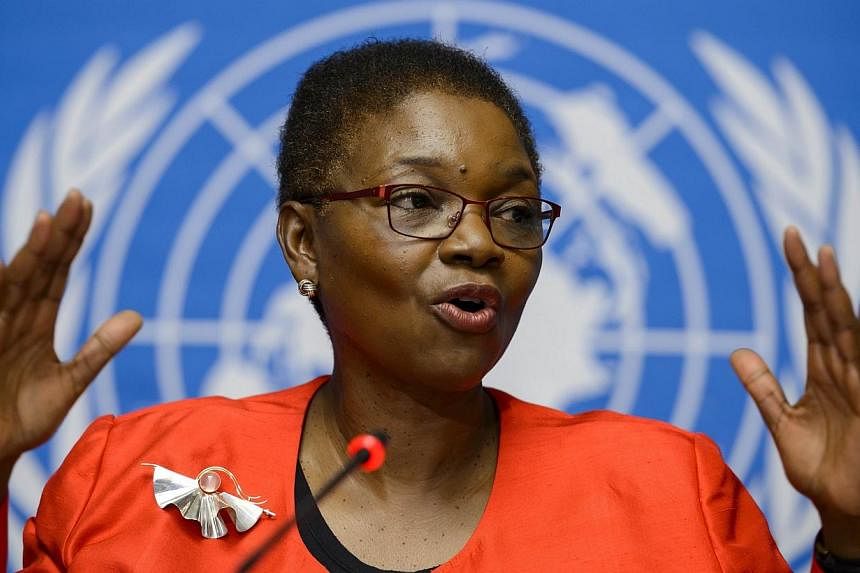GENEVA (AFP) - Nearly US$1 billion (S$1.26 billion) is needed to fight the Ebola outbreak raging in west Africa, the United Nations said on Tuesday, more than doubling the estimate it made less than a month ago.
UN humanitarian chief Valerie Amos told reporters in Geneva there was a "huge funding challenge", warning that "if not dealt with effectively now, Ebola could become a major humanitarian crisis in countries currently affected". The response to the crisis will require US$987.8 million, with about half needed for the worst-hit country, Liberia, the UN said in its response plan.
It stressed there were some 22 million people living in the three countries most affected by the outbreak.
The UN announcement came as the death toll from the worst-ever Ebola epidemic rose to 2,461, out of 4,985 cases in the three west African countries that have borne the brunt of the disease, according to fresh figures from the World Health Organisation (WHO).
The UN document estimates that some 20,000 people could be infected with Ebola by the end of the year, with Guinea accounting for 16 per cent of infections, Sierra Leone 34 per cent and Liberia a full 40 per cent.
If the international community and affected countries respond swiftly and energetically, transmission should begin to slow by the end of the year and end by mid-2015, the document said.
"This health crisis we face is unparallelled in modern times," WHO's emergency chief Bruce Aylward said at a joint press conference.
"We don't know where the numbers are going," he said, pointing out that two weeks ago when WHO said it needed the capacity to manage 20,000 cases, "that seemed like a lot".
"That does not seem like a lot today," Mr Aylward said.
While it was difficult to estimate accurately how many people might become infected and die going forward, Mr Aylward said WHO believed "the numbers can be kept in the tens of thousands, but that is going to require a much faster escalation of the response if we're to beat the escalation of the virus".

